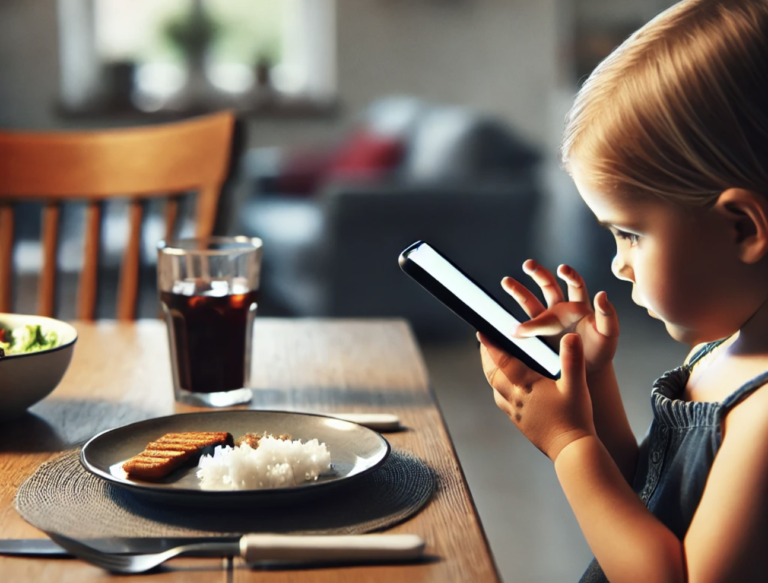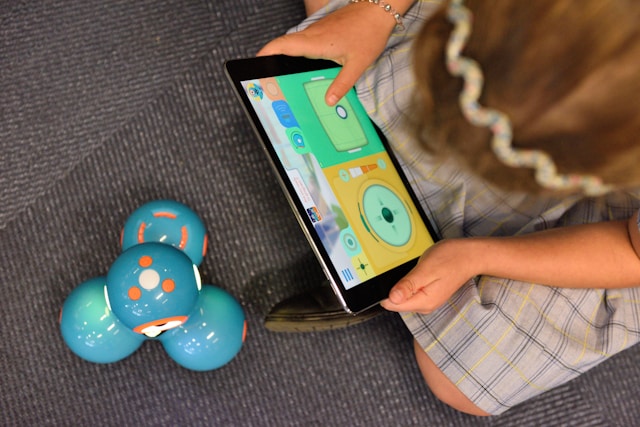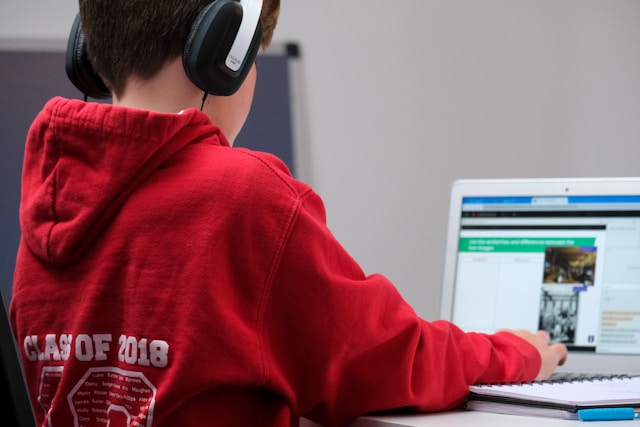
In today’s digital age, many parents wonder, “Should kids watch phone while eating?” It’s not uncommon to see children glued to screens during meals, whether at home or in public. While this may seem like an easy way to avoid tantrums or keep kids occupied, it’s essential to consider the potential impact on their health, behavior, and family dynamics. In this article, we’ll critically explore the effects of allowing screen time during meals and why parents should reconsider this common habit.
Many families today have made digital devices a regular part of their mealtime routine. Whether using a phone or tablet, allowing children to watch something while eating has become a way to avoid distractions or encourage them to finish their meals. However, this reliance on digital devices at the dinner table can have unintended consequences. While it may seem like a convenient solution, using screens during meals may be doing more harm than good.

One of the most significant risks of watching phones while eating is its impact on healthy eating habits. When children are engaged with a screen, they are less likely to focus on the food in front of them. This distraction prevents them from recognizing when they are full or hungry, which can lead to overeating or undereating. In addition, distraction during meals can prevent children from chewing their food properly, which affects digestion and leads to poor eating behaviors over time.
Moreover, studies suggest that screen time effects on children extend to their overall relationship with food. When they watch phones while eating, they are not learning to enjoy the meal, savor flavors, or listen to their body’s hunger cues. This can have long-term consequences, making it more challenging for children to develop mindful eating practices as they grow.
Mealtimes offer a prime opportunity for families to bond, but when digital devices are introduced, the chance for communication diminishes. Instead of talking to each other, children focus on the screen, and parents might feel disconnected from their kids. Over time, the habit of watching phones during meals can erode family relationships and weaken the sense of togetherness that shared meals provide.
For parents asking, “Should kids watch phone while eating?”, one critical consideration is the impact on family mealtime routines. If phones become a regular presence at the table, it takes away from the moments of connection and conversation that are so valuable for child development.
From a behavioral perspective, technology and child development are closely linked. When children watch screens during meals, they may become overly reliant on these devices to stay entertained. This reliance can diminish their ability to self-regulate emotions and focus on other activities. Over time, their attention span may decrease, leading to difficulties in concentrating on schoolwork or other tasks.
Moreover, allowing screens during meals can contribute to behavioral issues in kids. Children who are used to watching phones at the table might resist eating without the distraction, leading to tantrums or emotional outbursts when the screen is removed. This dependency on devices can hinder the development of important life skills, such as patience and emotional regulation.
While allowing children to watch phones while eating may provide some short-term relief for parents, the potential benefits are limited. In specific circumstances, such as dining out or managing difficult behavior, screens may offer a temporary solution. However, the screen time effects on digestion, attention, and child development often outweigh these minor advantages.
Parents must weigh the convenience of screen time during meals against the long-term costs. Although it may be easier to let children watch a show during dinner, the resulting impact on their eating habits, cognitive function, and family relationships should give parents pause.
Many child development experts advise against allowing screens during meals due to their impact on children’s attention span and mindful eating habits. Kids need to engage with their food and the people around them during mealtime, not with a phone or tablet. Removing these distractions helps children better understand hunger cues and builds healthier long-term relationships with food.
Allowing screens during meals also impacts the emotional and social development of children. Family mealtime routines without screens create a setting where kids can practice social skills, learn to communicate, and enjoy shared experiences. The long-term effects of screen-free meals promote healthier relationships within the family and encourage healthy eating habits.
If parents are looking for ways to engage children during meals without using phones, several strategies can help. First, involve children in preparing the meal. This can make them more interested in the food and less likely to need a screen for distraction. Another approach is to introduce fun activities like conversation games, storytelling, or even mealtime-specific toys that keep them engaged without requiring a device.
Encouraging children to be present during mealtime will strengthen their ability to focus on the food and family, helping them develop healthier eating patterns and attention spans. This mindful approach is beneficial not just for children’s attention span but also for reducing behavioral issues during meals.

So, should kids watch phone while eating? Although it might seem like a convenient way to keep children entertained, the long-term consequences of regular screen time during meals are far from positive. The use of digital devices at the dinner table affects children’s eating habits, digestion, attention span, and family relationships. Parents should aim to reduce screen time during meals and instead promote healthier, more interactive experiences that support both child development and healthy eating habits. Ultimately, limiting screen time at meals will benefit children’s physical and emotional well-being and strengthen family bonds.


